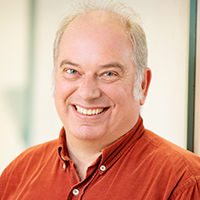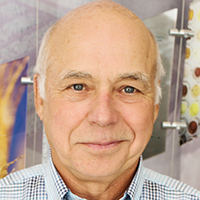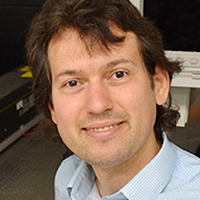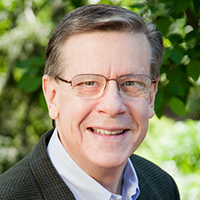
Atmospheric sciences professor Atul Jain is one of six U. of I. faculty members on the 2021 Highly Cited Researchers list.
Photo by L. Brian Stauffer
CHAMPAIGN, Ill. — Six faculty members at the University of Illinois Urbana-Champaign have been named to the 2021 Clarivate Analytics Highly Cited Researchers list.
The list recognizes researchers who demonstrated significant influence in their chosen field or fields through the publication of multiple highly cited papers during the last decade. Their names are drawn from the publications that rank in the top 1% by citations for field and publication year in the Web of Science citation index.
The highly cited Illinois researchers this year are: materials science and engineering professor Axel Hoffmann, atmospheric sciences professor Atul Jain, crop sciences and plant biology professor Stephen Long, plant biology professor Donald Ort, and mechanical science and engineering professor Arend van der Zande. Ed Diener, a professor emeritus of psychology who died in April, also was on this year's list.

Materials science and engineering professor Axel Hoffmann.
Photo by L. Brian Stauffer
Hoffmann is a Founder Professor in materials science and engineering and a member of the Materials Research Laboratory. His research focuses on topics related to magnetism, such as spin transport, magnetization dynamics and biomedical applications. His work on spin Hall effects has contributed to the development of spintronics, electronic devices that harness electron spin for faster and more efficient computing. Hoffmann is a Fellow of the American Vacuum Society, the American Physical Society and the Institute of Electrical and Electronics Engineers.
Jain studies the interactions between climate and physical and biological processes, including land use, hydrology, energy and carbon and nitrogen cycles. His team has developed a global model-data integration framework that uses satellite and ground-based observations to study climate impacts at regional and global scales. He is a contributor to major assessments of the Intergovernmental Panel on Climate Change and has earned numerous awards and honors, including the National Science Foundation's Faculty Early Career Development Award and inclusion on the Reuters list of top climate scientists.

Crop sciences and plant biology professor Stephen Long.
Photo by L. Brian Stauffer
Long is the Stanley O. Ikenberry Chair of Crop Sciences and Plant Biology. He uses computational and bioengineering approaches to improve photosynthetic efficiency and works to address the effects of climate change on crop yields. He was elected a Fellow of the Royal Society of London in 2013 and a member of the National Academy of Sciences in 2019. He has been recognized as a highly cited researcher every year since 2005. He directs Realizing Increased Photosynthetic Efficiency, a multinational project. He is an affiliate of the Carl R. Woese Institute for Genomic Biology at the U. of I.

Plant biology professor Donald Ort.
Photo courtesy Carl R. Woese Institute for Genomic Biology
Ort is the Robert Emerson Professor of Plant Biology and Crop Sciences at Illinois. His research focuses on improving photosynthesis and addresses crop responses to global change factors including increases in atmospheric carbon dioxide and temperature. He leads the Genomic Ecology of Global Change theme in the IGB and was elected to the National Academy of Sciences in 2017.

Mechanical science and engineering professor Arend van der Zande.
Photo by Julia Stackler
Van der Zande's research focuses on the mechanics of nanostructures and leveraging the unique properties of nanomaterials for next-generation technologies like biosensors, quantum systems and wearable electronics. He is a group lead in the Illinois Material Research Science and Engineering Center.

Psychology professor Ed Diener.
Photo by L. Brian Stauffer
Diener was a social psychologist and a leader in the field of positive psychology, which focuses on the factors promoting happiness and well-being. In the mid-1980s, Diener and colleagues developed the Satisfaction with Life Scale, and in 2009 the Flourishing Scale, both designed to gauge happiness – which he called "subjective well-being" – in a methodical, repeatable manner. He was a co-author of hundreds of articles on the subject of well-being. He won the American Psychological Association Award for Distinguished Scientific Contributions in 2012. In an obituary of Diener, The New York Times called him "a playful social psychologist" who conducted "pioneering research into what defined contentment."






